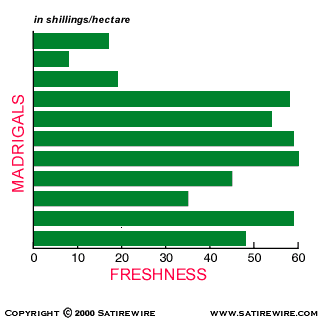So it has been a torrid couple of weeks for MPs outed having been caught with their hands in the cookie jar. Schadenfreude, Epicaricacy, aighear millteach and their ilk are good words to roll around the tongue, and savour whilst we lob cabbages and rotten tomatoes at those in the pillory: all the more unattractive being that their “misfortune” was brought about by their own actions and a display of lower moral standards than is clearly desirable in our political representatives.
Auto-Epicaricacy: a term I just made up, applying some word logic, would mean taking pleasure in your own misfortune. Definitely an unhealthy and paradoxical mental state, but I suppose optimistic, in that every cloud has a silver lining…
I was particularly fascinated and driven to ask “how does that work, then?” by the declaration of one misadventurer that “Of course I feel that my reputation is tarnished, but my integrity is intact”.
Integrity: the unimpaired state of anything : uprightness : honesty : purity – Chambers 20C
What logic system do you have to apply, what set of axioms must one have, how must one deconstruct common sense to be able to make this statement? For a start, you would have to look at redefining some core words: unimpaired, anything, upright, honest, pure – take your pick.
Words are a key part of a consultant’s stock-in-trade, and pictures too. One of my favourites satirical sites, now sadly defunct, was SatireWire which ran a series of bizarre and entertaining statistical charts like this…
And of course every industry has its buzz-words and jargon, which can be useful short-hand for many forms of communication, but often quite poisonous when they leak into other places.
Note the use of the word “key” in the preceding paragraph – a consultant-y sort of word if ever there was one, it means important, significant, stands out from the crowd. Non-key things are not interesting…now go back and carry on reading here
The recent attempt by the Local Government Association to proscribe some logofluvial jargon-words was a valiant attempt to stop etymological pollution in Local Government communication with the rest of us. I am certainly a fan of Plain English, and keeping things short and sweet with some sharp Anglo-Saxon monosyllables replacing loquacious logorrheic verbal peregrinations, but equally a devotee of precision and conciseness which some longer words can bring to a sentence, by conceptual elision, perhaps.
So I was interested to see some words on the list that I have used myself and as have many of my colleagues. These are words from the consulting domain that do have proper surgically precise and correct meanings in the right hands, but indeed deadly in the wrong. Other words on the list would be posionous in any context:
- “Baseline” is a word I know well that has meaning both in project planning and also in procurement – in both areas being the datum from which you measure some sort of progress or achievement.
- “Predictors of Beaconicity“, however, is never going to win any prizes for clarity….
The list is also very good material for Buzz-word Bingo…
And talking of words and in an interesting juxtaposition of neurons firing, I noticed that the BBC were having a Poetry Season. Being a self-professed iconoclast and fact-based sort of person, I have a completely tin-ear for poetry which is just a form of “talking funny” (in an unfunny way, unlike puns).
So to finish, I have constructed a Boston grid attempting to make some sense and classify some of the odder behaviours of my fellow human, viz….
| “Talking Funny” |
|
|
|---|---|---|
| Normal |
|
|
| Normal | “Dressing Funny” |

